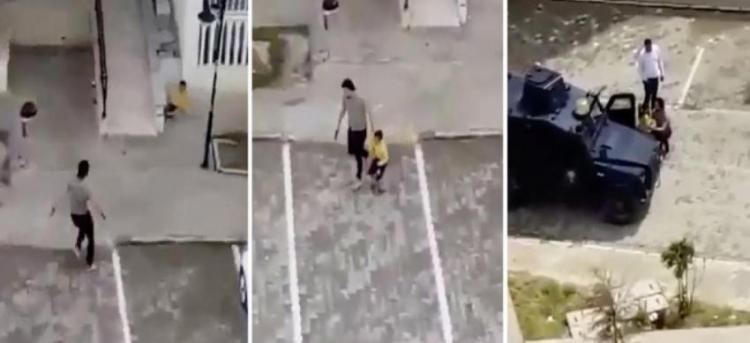Turkish police shoot at disabled child over curfew
North-Press Agency
On Sunday, a widespread outrage erupted on social media in Turkey after a Turkish policeman fired in the air towards a disabled child in Mardin province, southeast of Turkey, for violating a government curfew to prevent the spread of coronavirus.
Authorities opened an investigation against the background of the incident after posting video footage on social media explaining what the child witnessed, and the policeman was suspended from work until the investigation is completed.
The video footage showed young children escaping from police in a residential neighborhood in Mardin province. It appeared that a policeman in civilian clothes ran towards a child sitting on the floor near the entrance of a building, firing indiscriminately before dragging the child to a police armored vehicle, causing the child to urinate on himself, according to the newspaper Yenicak.
Witnesses said that despite the residents' clarification that the child is disabled and suffers from learning difficulties, the police continued their "aggressive approach", according to the news website Ahval.
In a related context, at the end of last month, Turkish police shot and killed Syrian youth Ali Hamdan al-Assani, from the northern countryside of Aleppo, in Adana under the pretext of violating the curfew.
At that time, Turkish media said that the young man refused the security forces' request to stop, and fled instead. The police then fired, hitting him in the leg.
However, private sources close to the young man's family told North Press that "the family of the betrayed said that what had Turkish media said was a lie and confirmed that he was shot in the back, and that the young man fled because he was in violation of the curfew because he was under the age of twenty and for fear of being fined."
At the beginning of April, Turkey imposed a curfew on those over the age of 65 and under the age of 20 years and indicated that fines and legal measures would be imposed against violators of the decision.

